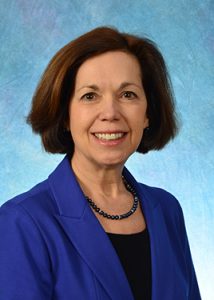Leading researcher provides valuable insights into causes and impact of physical inactivity.

Epidemiologist Leigh Callahan, PhD, helped achieve further international recognition for the Thurston Arthritis Research Center (TARC) when she was featured as keynote speaker at the annual conference of the prestigious National Centre For Sport and Exercise Medicine in the UK. In her address, she spoke to approximately 200 leading medical experts regarding the significant public health problems associated with physical inactivity in the US, as well as emerging trends in the management of chronic diseases such as arthritis through the use of exercise.
Some of the highlights from her presentation included the following findings and observations:
- In view of its prevalence, global reach and impact on health, physical inactivity can now be described as a “pandemic,” with far-reaching health, economic, and social consequences.
- Studies show that physical activity such as walking can reduce pain, improve function, mood and quality of life for adults with arthritis. Unfortunately, people with arthritis too often stop exercising because of pain or the misperception that exercise will make their condition worse.
- One of the leading publicly available initiatives to increase walking for individuals with arthritis – The Arthritis Foundation’s Walk with Ease Program – was evaluated and established as an evidence-based, Centers for Disease Control and Prevention (CDC) approved program by a study conducted at TARC. For this project, which was commissioned by the CDC, Dr. Callahan was the principal investigator. She has also lead five other studies evaluating physical activity and behavioral lifestyle interventions that are appropriate for people with arthritis, including the Arthritis Foundation’s Tai Chi program, as well as a behavioral lifestyle intervention known as Active Living Every Day.
- One of the most important and exciting trends in the US is the increasing level of partnering among public health and clinical medicine professionals (rheumatologists, orthopaedists, pain specialists, physical therapists, psychologists, etc.) to be more proactive in encouraging people with arthritis to be less sedentary and more physically active. Exercise is becoming increasingly viewed as a form of “medicine.”
Dr. Callahan’s nationally recognized epidemiological research continues to provide important insights into the causes as well as the social impact of arthritis for patients, their families, and communities. She and her team at TARC remain committed to conducting research that improves the lives of people with arthritis.